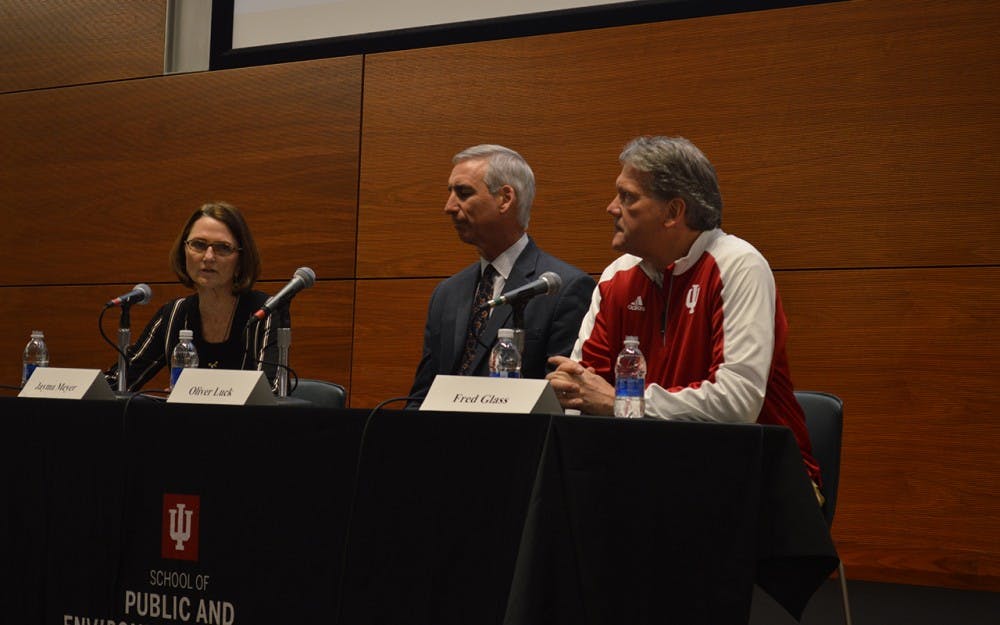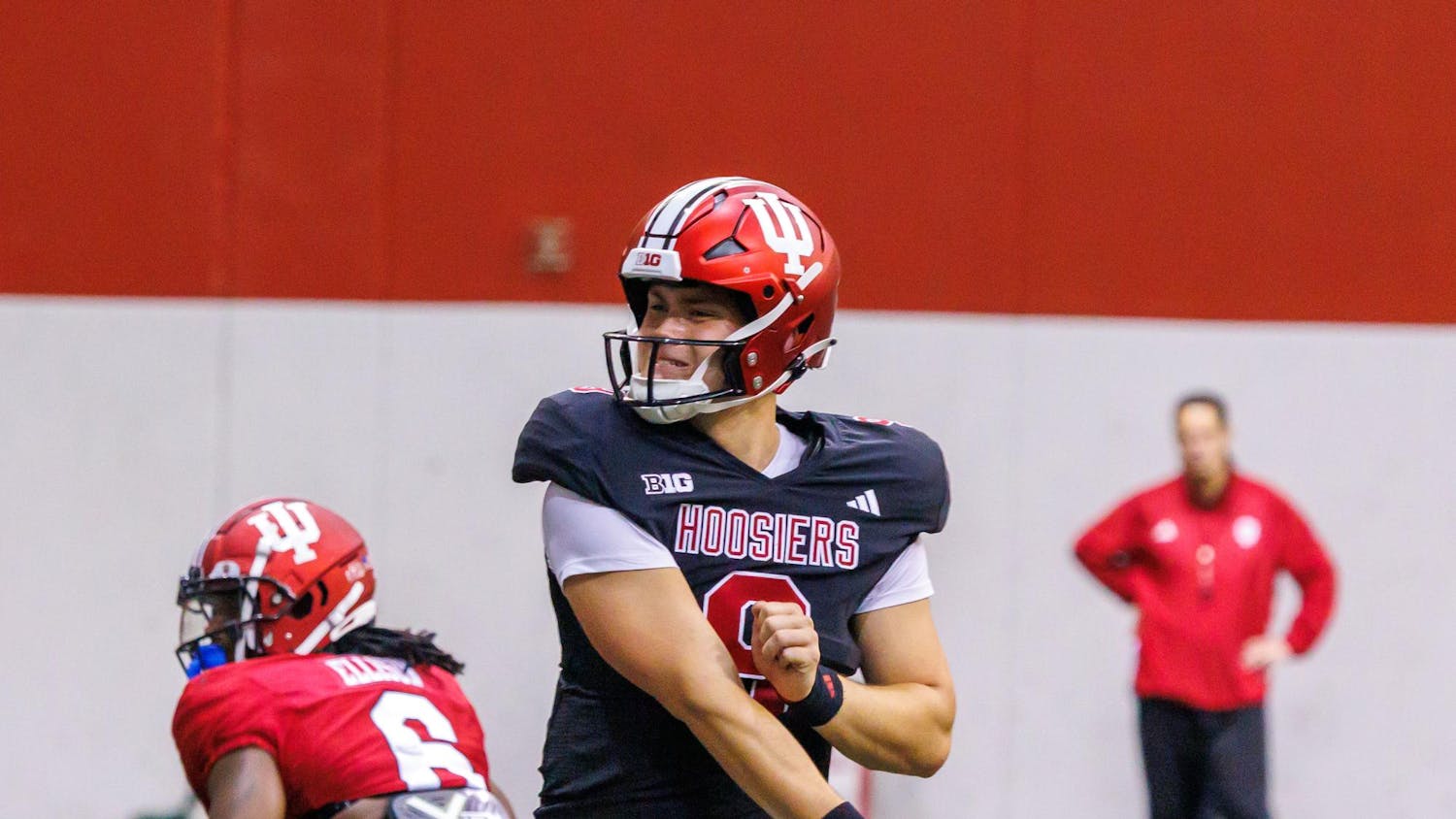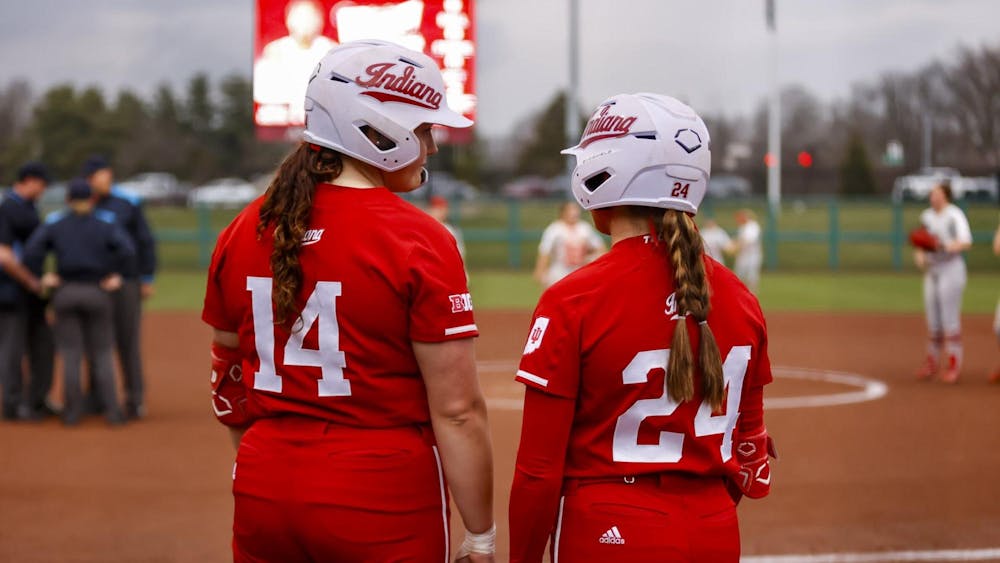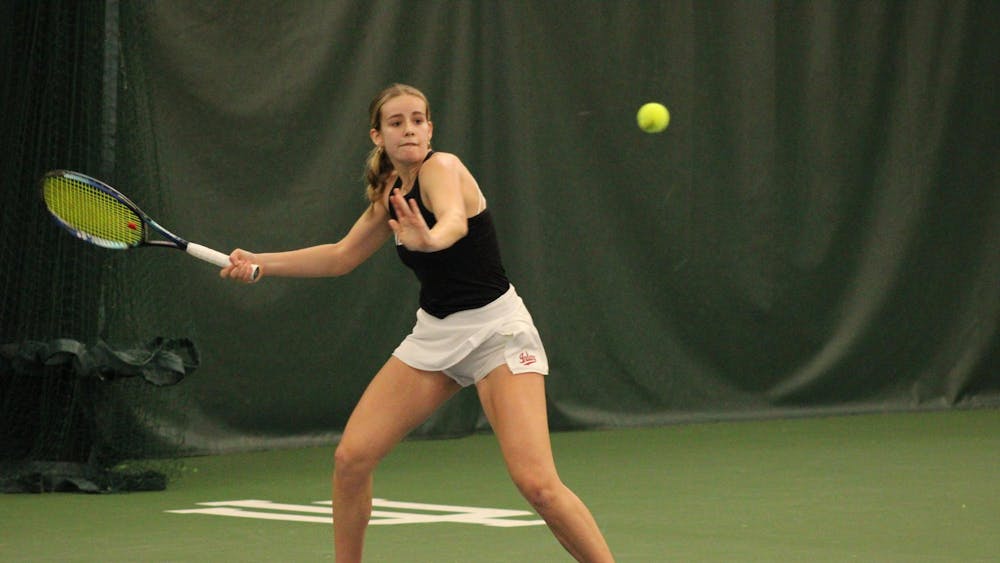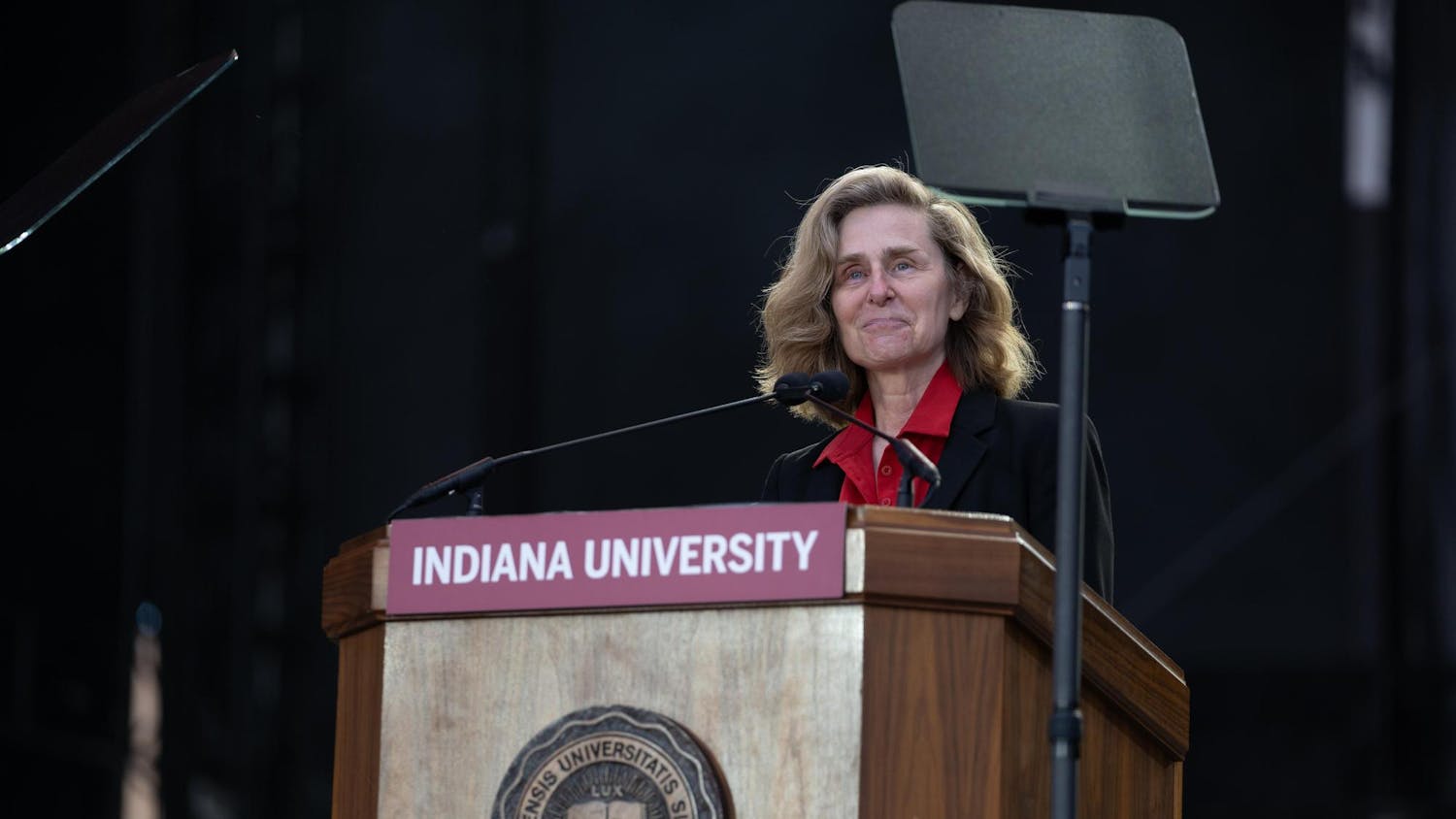College athletics have come under fire in recent years.
The debate about paying athletes has become more intense, and many legal challenges to the concept of amateurism have been brought through the court system.
However, at a panel on the future of college athletics Monday, several experts in the field remained confident sports at the collegiate level will continue to prosper.
SPEA was host to a panel in the Global and International Studies Building Auditorium to discuss many of the hot-button issues facing the NCAA. The panel included IU Athletics Director Fred Glass, NCAA Executive Vice President Oliver Luck and School of Public and Environmental Affairs professor Jayma Meyer.
Meyer teaches V450: Sports Law and Public Policy at SPEA, and she moderated the discussion.
With the changing media environment and legal challenges that strike at the heart of the college athletics, Luck remained resolute that college athletics will survive and thrive moving forward.
“We’ve faced threats over many, many years, but if we take a step back and look at what are, in my mind, the two most important pillars of college athletics, which is No. 1 education and No. 2 is amateurism,” Luck said. “Those are two very important pillars, and those have survived 150 years.”
Glass said college athletics wasn’t going anywhere any time soon even though the future is uncertain with issues of financial sustainability and changing media consumption habits.
“An advantage that sports have in this environment is people want to consume it live,” Glass said. “That’s why these media rights deals are so big.”
Luck said college athletics are in a healthy place and promote values that are timeless.
One legal question that has continued to surface in recent years is the amateur status of student-athletes. A multitude of former college athletes have brought suits trying to challenge this concept, and litigation is pending in many of these cases.
Glass said he likes to use a different phrase for amateurism especially when given the demands on student-athletes and the money college athletics earn. Glass has called it the “collegiate model” because he said it captures the educational side of college athletics better.
“If we give students money over and above that which reimburses them or at least arguably reimburse them for their costs, then we kill the goose that’s laying the golden eggs,” Glass said. “You take the special sauce out of sports.”
He said if schools tried to outbid each other to get a player, the magic of sports would start to erode.
Maurer School of Law professor Kevin Brown, who teaches B678: Law & Sports in the Maurer School of Law, and Judge David Hamilton of the Seventh Circuit of Appeals also spoke at the panel.
Hamilton was a judge in an important case, the Berger case, which determined that college athletes weren’t employees, and he says he thinks there will be a lot more challenges to the collegiate model because of how much money is involved. He says judges have to tread carefully because the decisions in these types of cases have wide-reaching implications.
Brown questioned who’s speaking for the athlete especially with all the money in college athletics. He said the questions will continue to linger as the revenue continues to grow exponentially.
“Given those huge amounts of money, is this a fair system when you’re talking about the division of the revenue?” Brown asked.
The response to the panel was positive from the crowd.
IU student Keith Radzik, the vice president of IU’s Business World of Sports club, said he liked the panel.
“It’s absolutely remarkable that we can have these resources as students, and obviously getting the dialogue they can offer on some of the most pressing topics is fascinating, and it helps us as students,” Radzik said. “And they do it in an amusing way.”

